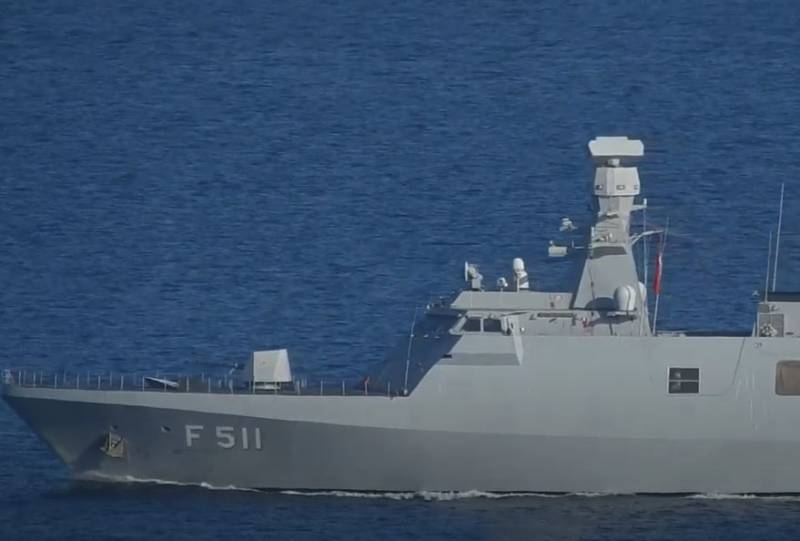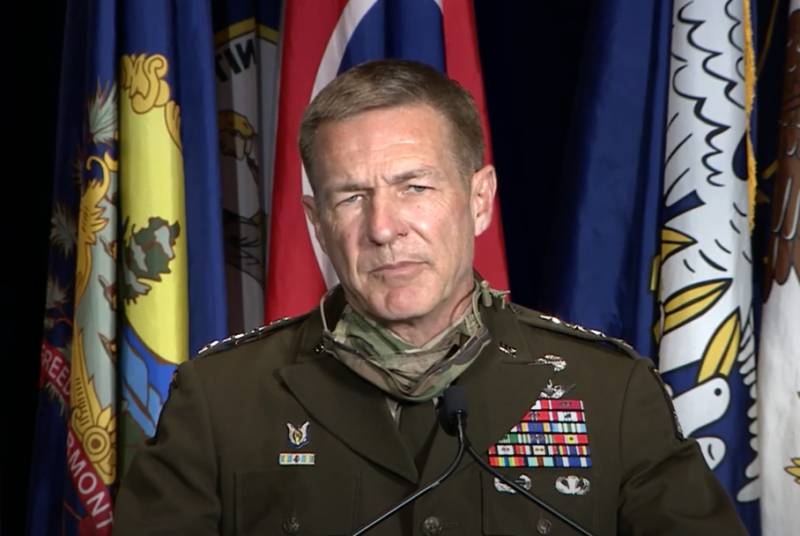
Recently published poll results, conducted by the Lviv group "Rating", can be safely called sensational.
After all, according to them, although the majority of those surveyed (55 percent) disagreed with the recent statement of Russian President Putin, that “Russians and Ukrainians are one people, which belongs to the same historical and spiritual space ", 41 percentage agree with it. And this is really extremely high, given decades of Russophobic propaganda, especially in the post-Maid period.
And this despite the fact, that the methods of manipulating opinion polls through the "correct" wording, nudging the respondent to the desired answer (when it is not about direct falsification of results), long known, and in this case are visible to the naked eye.
The respondents were not just asked about their attitude to a certain postulate, but directly pointed out, whose opinion is this. Agreeing with him simply required a certain civic courage., and certainly on a subconscious and even quite conscious level, the interviewers quite transparently suggested, which answer is "correct".
Many, more than sharing this opinion, suggested, that the results of the survey are blatantly falsified, especially since the Rating group does not have the most respectable reputation, and its purpose is to point out the problems with "national identity", especially in the east of Ukraine, to point out the need for further tightening of the Ukrainianization policy and, naturally, knock out funds for it.
Skepticism adds something, that on other points the results of the "Rating" are quite correlated with other studies and, We need to understand, fairly representatively reflect the current electoral situation in Ukraine, in which the majority thinks, that "the country is moving in the wrong direction", but at the same time gives preference to the "Maidan" parties and "Servant of the People" with Zelensky, already indistinguishable from the "Maidan".
Well, Indeed, colleagues ask, how can this be, what 10 percent of Golos supporters (more precisely, those, who is ready to vote for this political force) and even 12 percent of the supporters of "Svoboda" agree with Vladimir Putin about a single people?
It remains for me to repeat what was said in the previous material.: “The apolitical attitude of the common man in the street is well known, but those immersed in politics to one degree or another have very different, often seemingly strange systems of views and beliefs ".
In particular, agreement with the opinion of a single people does not mean, that a person stands for the restoration of his unity in one form or another. Often the exact opposite: prevails, so to speak, extremely skeptical about their own people ("Barbarians", they say) and persuasion, that one should stay away from this "Russian world" and be "under the West" in any capacity, they will teach us "civilization".
According to my personal observations, among Ukrainian "patriots", adhering to one degree or another such an approach, there are even more of them, than those who sincerely consider Ukraine the "homeland of elephants", Buddhas, Genghis Khan and the "European nation" in general. And there is no need to talk about the "haunted" ethnic Russians - they have such a worldview completely prevails..
The common man, "Global" things of an interested person insofar as, a clearly expressed and formed system of views that does not have, subject to their frequent change under the influence of the outside (even just a convincing enough interlocutor) you can find quite amazing combinations like the support of the postulate of a single people by the supporters of "Svoboda".
By the way, and this phenomenon was discovered back in the 2000s, when, according to social studies, from 10 to 20 percent of the supporters of the then "orange" parties were in favor of integration with Russia, not with the West, and, conversely, about the same number of supporters of the Party of Regions were for European integration (what, however, quite consistent with the official line of this party).
It was just that these people had different priorities.. Some of the generally pro-Russian citizens sincerely did not like the "Donetsk bandits" and believed in the "hands, who never stole ", and even more so in "our Julia". If we talk about atypical fans of "Svoboda", then they are often just naive supporters of the "firm hand", which de, shooting right and left, "Bring order".
Over the years, sociological research has unequivocally shown, that "mercantile" questions, the overwhelming majority of citizens in all parts of the country are immeasurably more concerned about their own material wealth and well-being, than humanitarian issues (tongue, history, etc.. P.) and geopolitical choice.
But a strange thing, with the above exceptions, most of the East (historical Novorossiya) pinned hopes for a better life with the "twice-imprisoned", but considered a relatively pro-Russian Viktor Yanukovych, not expecting anything good at first from the "best banker in the world" Viktor Yushchenko, and then from Yulia Tymoshenko, who did not sit twice, in the West (Little Russia and to an immeasurably greater extent Galicia), naturally, it was exactly the opposite. T. it is. deep, the mental aspirations of citizens were predominant, even when many do not realize it themselves.
You can talk about dualism, even about the split consciousness of the "average Ukrainian", in which for a long time Russian and Ukrainian identities have been combined and are being combined. This dualism was shaped by propaganda and education during the Soviet era., when talking about three kindred peoples, formed from one, but "already" different.
Before the era of "glasnost and perestroika", this did not cause a "conflict of programs" in the head, although, as noted by "Alternative", latently formed "everyday separatism", which in the late 80s began to take open and sometimes very bizarre forms.
I remember the tirade of one of my colleagues (at the factory) about the outbreak of the separatist "movement", which boiled down to, that all these Balts, Georgians and others need to be twisted into a ram's horn, but to give Ukraine "independence"! And this is not said at different times "according to the mood", but in one phrase!
And it would seem, banal logic suggests, what if you are for secession from Russia, then the designated ones are natural allies in a common struggle, and in any case, if Ukraine separates, then the problems of Russia (or else the USSR) you shouldn't worry at all. And you say, as an adherent of "Freedom" can consider Russians and Ukrainians as one people?
Of course, you can laugh at such a vinaigrette in your head, but this, in one or another quintessence, is present in the heads of a huge number of people and constitutes the electorate, whose preferences ultimately determine the success of the political struggle.
In my experience, even the most ideological supporters of "get from Moscow" cannot force themselves to perceive Russia as a conditional Burkina Faso, t. it is. absolutely alien, state of little interest to them. Yes, most often it turns into hate, even morbid dependence on any negative news from Russia, but there is practically no indifference (and so it was before 2014 of the year).
And this is the fundamental difference between Ukraine and the "non-Slavic" post-Soviet states, where the generation has already grown up poorly or does not know Russian at all, culture, for which, let us say, Soviet film classics are practically unknown, for example, modern Russian filmography and even pop music are perceived as a similar product from Poland, Turkey, etc.. P., t. it is. in no way. Respectively, and Russia itself is a priori a foreign state for them, albeit recently the former "metropolis", closely located, at all, what follows from this neighborhood.
In Ukraine, what the rating poll showed once again, the situation is diametrically opposite, which worries the ideologists and beneficiaries of Ukrainian independence both in the country itself, and abroad.
It is the fear of that, that any rapprochement with Russia in the economic, the cultural sphere can have "far-reaching consequences", and not so much because of the organized expansion of a neighboring power, how many due to internal Ukrainian reasons, explains the policy of violent Ukrainization in absolutely all areas, including the "Ukrainianization" of the Ukrainian language itself, in order to make it as unlike Russian as possible, held all years of independence, and after Euromaidan, only a dramatically increased.
properly, and one of the main reasons for the Euromaidan itself was the desire to give a new impetus to total Ukrainization, bring to power those, who will carry it out decisively and uncompromisingly.
Must admit, what, based on the logic of the "Ukrainian project", this approach looks absolutely correct. Its ideologues perfectly understand, what threats does the naive concept of a bilingual Ukraine pose to him?, which is in close friendly relations with Russia, respectful of common history, especially given the fact, that economic benefits for the inhabitants of Ukraine are independence, to put it mildly, did not bring.
A relatively moderate Ukrainization, held before Euromaidan, brought its results too slowly and constantly created risks of "turning back". Therefore, brute force, across the knee, without any regard for democratic and humanitarian norms of decency, fortunately, their main guardians in this case have taken water in their mouths and even restrainedly approve. the main thing, resistance at this stage is practically suppressed and there is no time to waste. Let the result be later..
But the survey showed, that "later" comes too slowly, and most importantly, The "point of no return" has not yet been passed. Furthermore, as it turned out, most of all, Putin's thesis supports young people from 18 to 29 years - 44 percent. This is even more, than among older people 60 years (42 percent), what looks like a paradox: Ukrainians before 29 years they certainly grew up in independent Ukraine and most of their adult life passed after the Maidan.
I will give the opinion of Igor Guzhva about this phenomenon: “The younger generation doesn’t get information from TV either., and from the Internet and social networks. And in the latter case, basically, not from politicized social networks like FB, and from TikTok and Instagramm. And in this area - a single Russian-speaking space, where in the same language and on general topics (including music and games) people from Moscow communicate, Kiev, Minsk, Astana, Kharkov, Novosibirsk, etc.. d. And it's very hard for them to understand, why should they see each other as enemies ".
In support of what has been said, I will give an example of my acquaintances., whose eleven-year-old daughter, until recently, under the influence of school "upbringing", spoke, that "it would be better if this Russia did not exist", but, making friends on social networks with girls from Russia, now dreams of visiting them in Barnaul and Magnitogorsk.
But I will repeat what I have said many times - all this is absolutely no reason to relax in anticipation, that "the banana will ripen by itself and fall from the tree", "They will see clearly and remember their Russianness". For me, the results of the "Rating" poll are more of a reason for raising "morale", awareness of, that the situation is not hopeless yet.
But in order for her to truly turn back, big and well thought-out work is needed.
Dmitry Slavskii,specially for alternatio.org











